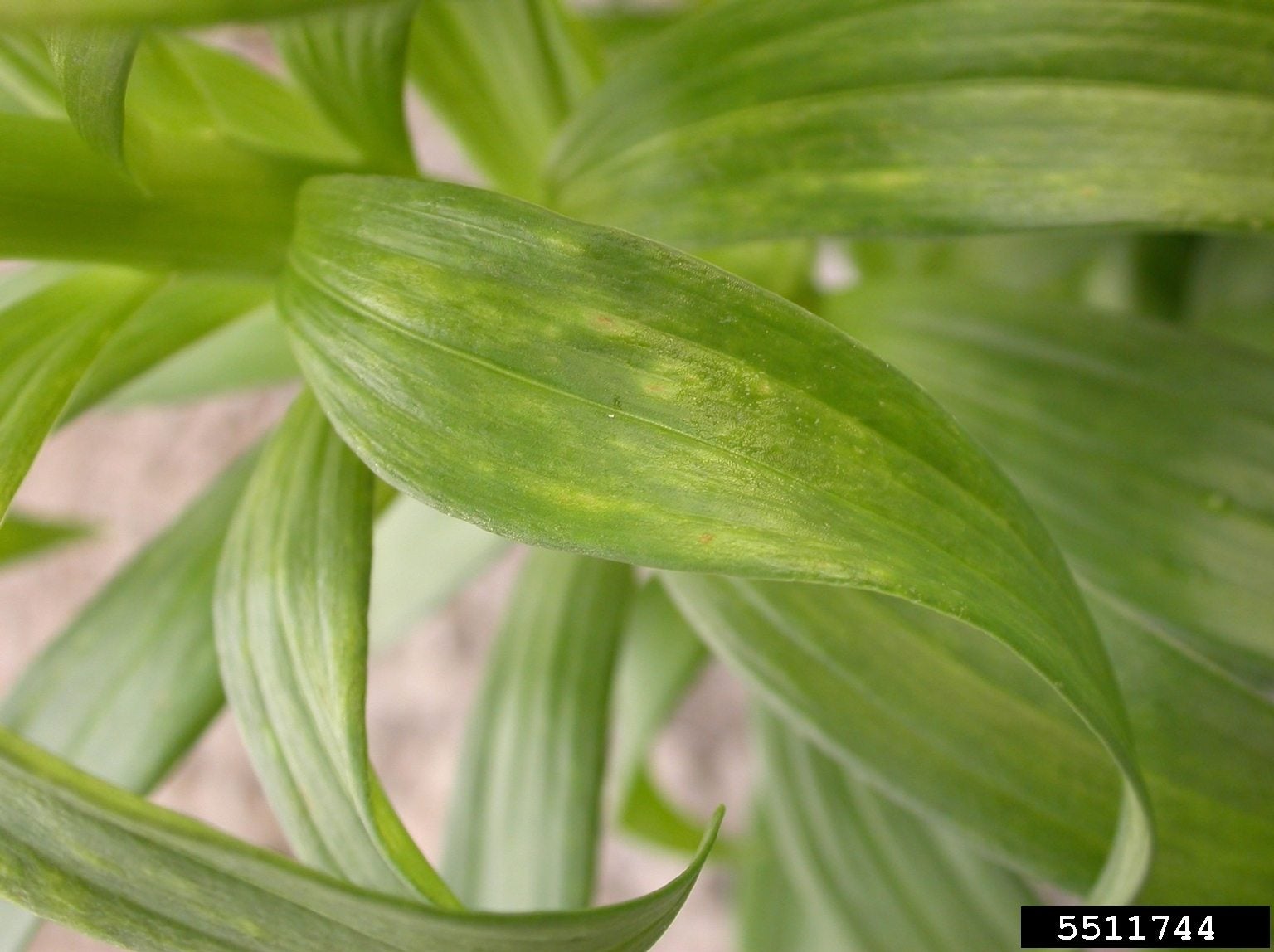Lily Mosaic Virus Detection And Treatment


Lilies are the queens of the flower world. Their effortless beauty and often intoxicating scent add an ethereal touch to the home garden. Unfortunately, they are often subject to diseases. Lily mosaic virus is most common in tiger lilies, which bear no harm, but can pass the virus on to hybrid lilies with extensive damage. Lily mosaic disease is not fatal but will mar the beauty and perfection of unique Lillium species.
What is Lily Mosaic Virus?
Plants in the Lillium genus have several potential viral issues but the mosaic virus is extremely contagious and common. It stems from those pesky aphids, whose sucking feeding behavior passes the virus from plant to plant. Lily mosaic virus affects some lilies more than others, and breeding programs have helped to develop resistant varieties. Viruses are mutating simple organisms. They are very hardy and adaptable and can be found in some form in almost every plant and animal on earth. Lily mosaic virus is the same strain as cucumber mosaic virus, a widespread disease in cucurbits. What is lily mosaic virus? It is the same virus that attacks cucurbits, but it targets the Lillium group of plants. These exotic and striking flowers may also be struck by Arabis mosaic or tobacco mosaic virus.
Lily Mosaic Disease Effects
The first signs and symptoms of the viral diseases may be hard to spot. Cucumber mosaic causes leaves to develop streaks and contorted foliage and blooms. Since the virus not only targets lilies and cucurbits but also common weeds and other plants, it spreads like wildfire in closely planted gardens. Over time the disease will affect the stems, leaves, blooms, and bulb of Lillium species. Arabis and tobacco mosaic diseases cause leaf mottling, leaf curl, and blistering of foliage and blooms. All the lily virus diseases can deplete the health of the lily plant over time.
Causes of Lily Mosaic Virus
It may seem like your lily patch is infecting itself as one plant after another develops symptoms. However, the root cause is aphid infestation. Check under the leaves for the little pests and you will likely find many of these sucking insects. As they feed, they inject the virus into the vascular system of the plant, and it transmits throughout the vein system to infect all parts of the lily. Lily mosaic disease is most common in tiger lilies whose bulbs may already be infected. Feeding activity on these plants will infect other lily species. For this reason, many lily collectors will not include the tiger lilies in their collection.
Treatment of Lily Virus Diseases
There are no chemical controls for this disease. The best treatments are prevention and control. Prevention starts with purchasing resistant varieties of lilies. Additionally, if you see signs of the disease, dig up the lily and destroy it to prevent the virus from spreading to other plants. Use bleach on any hand or cutting tools to disinfect them and prevent the virus from extending. Aphid control is of the utmost concern, as these are the organisms that transmit the virus to other plants. Use a good horticultural soap, blasts of water to wash off the insects, and good cultural care to increase the plant's health and resistance to pests. Lily mosaic disease can also be somewhat controlled by removing competing weeds and other plants from around your lily patch. The virus is unlikely to kill Lillium plants, but it does reduce the visual splendor of these magnificent flowers.
Gardening tips, videos, info and more delivered right to your inbox!
Sign up for the Gardening Know How newsletter today and receive a free copy of our e-book "How to Grow Delicious Tomatoes".

Bonnie Grant is a professional landscaper with a Certification in Urban Gardening. She has been gardening and writing for 15 years. A former professional chef, she has a passion for edible landscaping.
-
 5 Tough Urban Trees That Thrive In Cities – Top Picks For Urban & Suburban Landscapes
5 Tough Urban Trees That Thrive In Cities – Top Picks For Urban & Suburban LandscapesExplore the best urban trees that will add value to even the most challenging of landscapes. Get growing with these ideas and enjoy all the benefits of trees.
By Teo Spengler
-
 7 New & Improved Cultivars Of Old-Fashioned Plants – These Aren’t Your Grandma’s Plants!
7 New & Improved Cultivars Of Old-Fashioned Plants – These Aren’t Your Grandma’s Plants!Old is new again! These old-fashioned plants have new cultivars that are sure to thrive in your garden and bring the charm factor. Neighbors will be envious!
By Mary Ellen Ellis